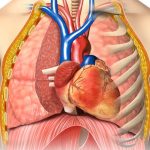While almost every aspect of the body is completely vital for its survival, excluding a few leftover organs from the caveman era, the brain can prove to be especially needy for optimal function. The brain controls the entire life system, so when it’s not functioning properly, not just one body part shows the effects, numerous body parts cease to function properly
One great example of how an unhealthy brain can affect an entire body is in the event of a stroke. Most strokes occur when blood vessels burst in the brain, or become blocked due to a blood clot. Strokes can do tremendous damage to the brain, and in its wake, tremendous damage to the body. Those who’ve experienced difficult strokes lose their most prized possessions, including the power of motion in certain body parts, the power of speech, hearing, and taste; and in the occasion of a stroke, all other functions
and senses are on the table to be lost as well.
Most brain illness is not necessarily due to unhealthy or unsafe conditions. The brain is extremely intricate and simply put, in one way or another, age is the primary reason for mental deterioration. Cells eventually replicate less effectively, and eventually cease to replicate. As cells in the body age, they become less effective at doing their jobs, and as a result, the brain ultimately suffers, becoming less and less efficient at its job as the body ages.
Before the ultimate end to our brains, they begin to decline in many ways, most notably in the realm ofcognition. Our thoughts come more slowly, feelings and senses become dulled and blunt, and reaction time is severely delayed as the brain ages.
Some age related cognitive decline is more serious than others. Complicated and degenerative diseases like Alzheimer’s disease pose not only cognitive threats to those suffering from them, but eventually cause death.
But normal, non–disease related age related cognitive decline, or cognitive aging as it is common lyreferred to, effects certain cognitive abilities like conceptual reasoning, memory, and processing speed.
There are countless studies taking place daily in which scientists are fervently trying to uncover the mysteries behind diseases like Alzheimer’s in order to develop effective and universal treatment options. Thus far, it seems that a great way to help prevent age related cognitive decline is via diet, and there are a lot of great dietary ways to include compounds that can strengthen the mind, even in old age.
A promising compound being studies is the macronutrient choline, a precursor of acetylcholine, a neurotransmitter vital to nerve and muscle function. Studies show that choline deficiency can lead to chronic liver damage and eventual liver failure.
This compound that is great for the liver is also great for cognitive function. In all, choline helps support many functions throughout the body like liver function, brain function and development, nerve function, supports energy levels, muscle movement, and helps to balance the metabolism.
In brain function, the hippocampus is responsible for the autonomous nervous system, as well as emotion and memory.
A study published in the journal Brain Research, conducted testing on the effects of choline on the hippocampus, finding it to increase hippocampal neurogenesis and provide protection against seizure-induced neuronal death and cognitive impairment, having already been found to enhance memory and cognitive function in stroke and Alzheimer’s patients.
During a seizure, the brain can become damaged as neurons get damaged. This damage affects learning and memory among other cognitive functions.
Researchers tested whether or not choline can help to ameliorate seizure induced damage to the brain. Choline was injected into the muscle tissue of seizure-suffering rats, with positive results.
Treatments that were given between 1 and 3 weeks after seizure showed neuroprotective effect but no effect on neurogenesis. However, when researchers injected choline beginning at 3 weeks after seizure, participants showed positive results after 3 weeks of treatments.
The rats were initially given a maze test to measure cognitive function. After their seizures, cognitive function declined, but after 3 weeks of treatments researchers found reduced neuronal death and BBB disruption, as well as increased neurogenesis, concluding that choline injections could also be a beneficial treatment for improvement of cognitive function in people living with epilepsy.
Choline can also help work synergistically with established cognitive function medications, with one study noting its ability to increase the effects of donepezil, a popular drug used to treat Alzheimer’s patients.
And finally, even one more study examining the benefits of choline touts choline’s ability to aid even moderate Alzheimer’s dementia.
For this study, 261 patients suffering from dementia were given 400mg capsules of either choline or a placebo for 180 days, assessing cognition at 90 days as well as the end of the trial.
Using a cognitive scale, researchers found that the patients being treated with choline supplements improved cognition, while those receiving a placebo had continued to decline, concluding that the study indeed suggests that choline can be an effective treatment to help slow cognitive decline in patients suffering from mild to moderate Alzheimer’s disease.
Perhaps the most promising data from studies involving natural and naturally occurring supplements is their safety. When consumed in the proper amounts, choline is safe and side-effect free, a claim that very few prescription medications can make.
While there aren’t daily recommended amounts of choline that you should be consuming, there are baseline amounts that researchers have shown to be beneficial. The average man or woman above the age of 14 years old, should be consuming between 425 and 550mg daily.
Some sources claim that it is very difficult to get enough choline through diet alone, as the body may have trouble absorbing it for various reasons, which include genetic disorders. These same experts recommend supplementing, and with high quality supplements.
Echoing the warnings of those public service announcements from the ‘80s, the mind is truly a terrible thing to waste, but it is even more unfortunate that most often, the mind simply deteriorates with age, thus making it the future endeavor of every brain on earth.
But that’s no reason to simply resolve yourself to inaction. Especially in the case of your brain, it is most beneficial to be proactive in maintaining its health, and choline is a proven, and effective place to begin.










